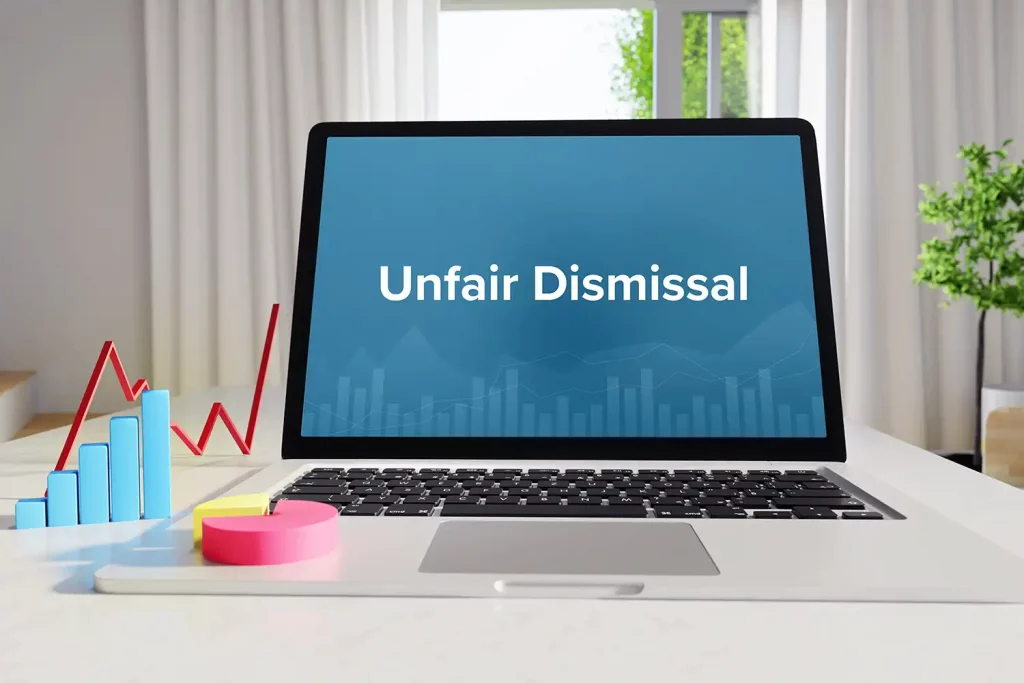Unfair dismissal & ill-treatment due to health & safety issues at work
Have you ever refused to attend your workplace because of health/safety risks?
Rated 4.8 Stars in Over 1,000 Reviews
Health and safety issues at work may have resulted in you refusing to attend your workplace. If that’s the case, and then you have been unfairly dismissed, had a pay cut, been bullied, or suffered other kinds of ill-treatment as a result of your health/safety concerns, then this article is for you.
What are your health and safety rights at work?
Your right to a healthy and safe work environment is one of the most important of your employment rights.
Your employer is obliged under common law and also under Section 2(1) of the Health and Safety at Work Act 1974, to “ensure, so far as is reasonably practicable, the health, safety and welfare at work of all his employees”.
If your employer doesn’t uphold this obligation, they can be investigated by the Health and Safety Executive and even face criminal prosecution.
Under Sections 44(1) (d)-(e) and 100(1) (d)-(e) of the Employment Rights Act 1996, you are also entitled to leave the workplace and to refuse to return to it until any imminent danger (eg the risks of contracting an infectious disease) has passed, so as to protect yourself – and possibly others too – from the danger.
It’s unlawful for your employer to dismiss you, make you redundant or otherwise subject you to any loss – such as reducing your pay, bullying you, or any other mistreatment – because you have left the workplace or refuse to attend it in the above circumstances.
If your employer is made aware of a health and/or safety risk in the workplace, but still doesn’t take steps to remedy the problem, you have the right to continue not to attend until such time as your employer does resolve the problems.
(See below for more detail on the practical implications of sections 44 and 100 of the Employment Rights Act.)
When may you feel unsafe and at risk?
There are various reasons why you may have genuine fears about your health and safety in the workplace, whether it’s due to an infectious disease, unprotected exposure to substances/ material, or similar health and safety issues. In our experience with Covid, the main reasons include:
- The need for social distancing and not enough space to practise it
- Being in public-facing roles (eg cashier, receptionist) and with inadequate protection
- Inadequate cleanliness in the workplace (eg no provision for cleaning surfaces during working hours)
- Having to share equipment in such a way that it cannot be cleaned after each individual has used it
- Personal protective equipment (PPE) is needed but none or insufficient is available

Refusing to work in an unsafe workplace
Under section 44 of the Employment Rights Act 1996, you are actually entitled to be paid 100% of your normal salary if you stay at home due to an unsafe workplace, and you can’t lawfully be dismissed for doing so.
What’s more, there is no 2-year minimum employment requirement (as there is with most other kinds of unfair dismissal claims) for you to have these employment rights.
This is an important piece of legislation for employees who have been unfairly treated by their employers – for whatever reason – and we’ll refer to it again later.
Can you be dismissed for not attending an unsafe workplace?
Section 100 of the Employment Rights Act 1996 relates to health and safety dismissals. Although this legislation was enacted a long time ago, it still applies.
Section 100 does not give you an absolute right to withdraw your labour if you think your workplace is unsafe. However, if you are dismissed for self-isolating due to an infectious disease for example, then this could amount to automatically unfair dismissal under the Act.
If you’re in good health, your employer might be allowed to discipline you in the circumstances, but not to dismiss you.
S100 of the Employment Rights Act 1996, ss (1) d & e, actually states:
‘(d) in circumstances of danger which the employee reasonably believed to be serious and imminent and which he could not reasonably have been expected to avert, he left (or proposed to leave) or (while the danger persisted) refused to return to his place of work or any dangerous part of his place of work, or
(e) in circumstances of danger which the employee reasonably believed to be serious and imminent, he took (or proposed to take) appropriate steps to protect himself or other persons from the danger.’
As with s 44 of the same Act, there is no minimum length of service (see above), so even if you’ve been employed for under 2 years, dismissal in these circumstances can still be regarded as unfair.
What can you do if you are dismissed or threatened with dismissal?
At a practical level, try to take some photos of your workplace, working layout or other evidence showing that your working environment is a threat to your health and/or safety. For example: Are people working in crowded conditions? Is there any visual evidence of unsafe equipment? Remember, it’s the health and safety of the workplace which you need to demonstrate is risky.
In any claim, you would need to show that you were absent from the workplace because you believed there was a danger to yourself or others from a disease (like Covid) or other threat to your health and safety.
You would also have to have evidence to support your claim that this was the reason why your employer dismissed you.
There are employment tribunal cases in this area of law. For example Harvest Press Ltd v McCaffrey 1999 ILRL 778 and Teasdale v John Walker T/a Blaydon Packaging (12.4.99 Case No.2505103/98).
Although both these cases are old, they are still relevant so far as the law and health and safety dismissals generally are concerned.
Note that the maximum amount that you can be awarded as compensation for most claims of unfair dismissal is £118,223, or 52 weeks gross salary, whichever is lower (from 6 April 2025).
See also our articles on unfair dismissal and compensation and how much you should get in your settlement agreement for further details and practical advice on being unfairly dismissed.

Unfair treatment for not attending an unsafe workplace
As briefly mentioned earlier, the Employment Rights Act 1996, section 44 is about the rights of employees to be provided with a safe working environment.
It gives them the right to take reasonable steps to protect themselves from what they believe is serious danger or threats to their health and safety.
The Act essentially says that employees should not be punished or suffer any losses (it uses the phrase ‘‘subjected to any detriment’) for taking such steps. Here’s the exact wording:
“44. Health and safety cases
(1) An employee has the right not to be subjected to any detriment by any act, or any deliberate failure to act, by his employer done on the ground that—
(d) in circumstances of danger which the employee reasonably believed to be serious and imminent and which he could not reasonably have been expected to avert, he left (or proposed to leave) or (while the danger persisted) refused to return to his place of work or any dangerous part of his place of work, or
(e) in circumstances of danger which the employee reasonably believed to be serious and imminent, he took (or proposed to take) appropriate steps to protect himself or other persons from the danger.”
Covid (or Coronavirus) presented a ‘serious and imminent danger’ as confirmed by the Health Protection (Coronavirus) Regulations 2020, at Regulation 3(1) – which says that: “the incidence of transmission of coronavirus constitutes a serious and imminent threat to public health.”
Not being paid and other unfair treatment for failing to attend an unsafe workplace
Mostly the ‘detriments’ experienced by employees who fail to attend an unsafe workplace have to do with employers withholding some or all of their pay.
You do not have to accept any reduction in pay, because you have taken protected action under the Employment Rights Act 1996. You are entitled to full pay at this time under section 44.
Therefore if your employer has withheld your pay, then you should ask them to reimburse you with back-pay for the income lost so far, and – if appropriate – to reinstate you on the payroll.
Sometimes employers make employees suffer in other ways as well, like bullying them and not allowing them to work from home when the work could have been done from home.

When is a workplace a serious and imminent health and safety threat?
What all the situations mentioned so far share in common is that the employee believes that their workplace is a danger and a ‘serious and imminent threat’ to their health and safety (section 44(1e) of the Employment Rights Act 1996).
As an employee, you may or may not be able or permitted by your employer to carry out your work from home.
Your employer may say there is work to be done at the workplace and doesn’t agree that the workplace is a danger or threat to your health and safety.
What matters is what the employee thinks about workplace safety
However, under section 44 of the Employment Rights Act and related judgements, what really matters is not what your employer thinks, but whether you believe that the workplace is unsafe and so are taking appropriate steps in the circumstances.
The steps that some employees took to protect themselves in the covid pandemic were to remove themselves from the workplace, and to remain away from it whilst the threat remained.
As specialist employment lawyers, we would argue that such steps were appropriate.
What you know about diseases or health and safety at work is not the key issue
This view also takes account of the employee’s knowledge about the nature of the threat and health and safety factors in the workplace at the time.
Even medical experts still don’t fully understand some diseases (like coronavirus), so it would be very difficult for an employer to prove that their employee should have been better informed about it.
Equally, it would be difficult for them to prove whether or not conditions in the workplace were adequate to protect employees against it.
So, in summary: your knowledge as an employee may not be very extensive about the nature of the threat and related health and safety issues in the workplace, but neither is anyone else’s.
The law is on your side
From a legal point of view, it is not unreasonable for you to think that the workplace might be a source of imminent danger to your health and safety if you were forced to attend when you had identified a significant health/safety issue
So it follows that it would not be unreasonable if you refused to attend the workplace in such circumstances.
All in all, the law is on your side and it is probable that you would have a case against your employer in an employment tribunal.
Negotiating a settlement vs an unfair dismissal tribunal case
In our view, negotiation is always preferable.
This is especially true if your case related to a virus like Coronavirus, where there haven’t yet been enough tribunal cases to tell us how the judiciary will deal with them.
If your employer is made aware of the main points of the law, they may be more inclined to re-think their approach.
They may also be more willing to pay you fully/fairly or to take whatever other steps are necessary to balance their employment needs with your health and safety ones.
You can help make them more aware of the relevant issues by forwarding them a copy of this article.
Alternatively, you would have a good basis to argue for compensation and end your employment by negotiating an exit settlement agreement.
Next steps
If you think you have been unfairly treated by your employer because you refused to attend a workplace that you thought was a health and/or safety threat, then get in touch with us at Monaco Solicitors to see if we can help.
Monaco Solicitors are well-established employment law solicitors specialising only in working with employees (not employers).
You will be in the hands of experts who have years of experience in winning cases for employees, yet who understand where you are coming from and the need for a friendly, jargon-free approach.
Contact us:
- Via this link,
- By phone on 020 7717 5259
- By email: communications@monacosolicitors.co.uk

